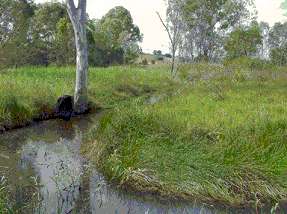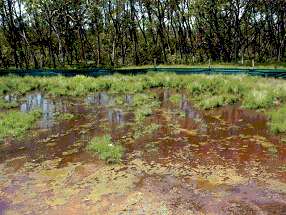Water
Water quality management in the department's projects is a necessary environmental responsibility. It is integrated into planning, design, construction and maintenance of the road network.
Transport and Main Roads and its contractors must take precautions when involved in activities that may impact on water quality and flow catchments.
Water quality of inland waters, estuaries and the ocean can be decreased by high turbidity, nutrient levels and environmentally harmful dissolved substances. As a result, decreased water quality can impact on aquatic biodiversity and terrestrial ecosystems.
The department endeavours to protect water bodies from spills, heavy metals, hydrocarbons, excessive nutrient levels, erosion sediments and other pollutants. Some examples of how the department seeks to achieve this are through appropriately managing polluted run-off from road surfaces, preventing erosion from road construction sites and minimising sedimentation into waterways.
Water quality management gallery

An important issue for the department: maintaining water quality in water bodies impacted by construction.

Sediment fences (in background) will reduce silt entering Bulimba Creek (behind Mangroves) during rehabilitation of this salt water couch area.
Marine pollution
Marine pollution is a very important issue for Queensland. The department is responsible for managing the prevention of coastal and marine pollution from ships. Marine pollution incidents are managed by Maritime Safety Queensland.
- Last updated 9 January 2023

